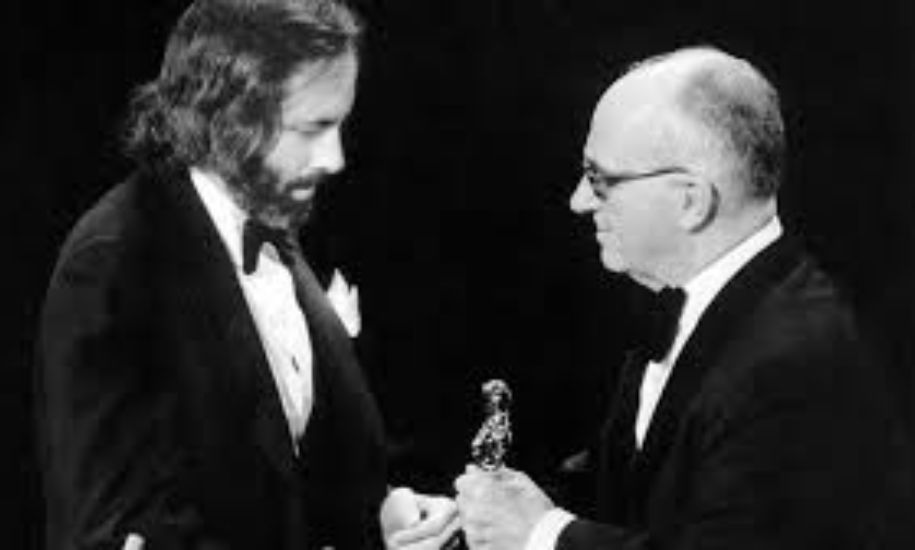Early Life and Beginnings in Hollywood
Robert Towne’s journey into the world of screenwriting began long before he penned his first script. Raised in a city that was the epicenter of the film industry, Towne was naturally drawn to the world of movies. His early years were marked by a fascination with storytelling, which he nurtured through his studies and early career. Towne’s initial forays into Hollywood were humble, with him taking on various roles in the industry, including acting and assisting in scriptwriting.
His big break came when he began working with Roger Corman, a legendary director and producer known for his low-budget films. It was under Corman’s mentorship that Towne honed his skills as a writer, learning to craft compelling narratives on tight schedules and limited resources. This period of his life was instrumental in shaping his unique style—one that combined sharp dialogue with deep, character-driven stories.
Breakthrough with The Last Detail and Chinatown
Robert Towne’s rise to prominence came with the release of The Last Detail in 1973. Directed by Hal Ashby and starring Jack Nicholson, the film was a critical success and earned Towne his first Academy Award nomination. The screenplay was praised for its raw, unflinching portrayal of military life and the complexities of human relationships. Towne’s ability to blend humor with poignant drama set the stage for his next major project, which would cement his legacy in Hollywood.
Chinatown (1974), directed by Roman Polanski, is widely regarded as Towne’s magnum opus. The film, a neo-noir detective story set in Los Angeles, was not only a box office hit but also a critical darling. Towne’s screenplay, inspired by real-life events and extensive research, delved into themes of corruption, power, and betrayal. The intricate plot and rich character development made Chinatown one of the greatest films of all time, earning Towne an Academy Award for Best Original Screenplay. His collaboration with Polanski and Nicholson on this project showcased his ability to craft stories that were both intellectually stimulating and emotionally resonant.
The 1970s: A Decade of Dominance
The 1970s were undoubtedly the peak of Robert Towne’s career. Following the success of Chinatown, Towne continued to dominate Hollywood with his writing. In 1975, he co-wrote Shampoo with Warren Beatty, a satirical comedy-drama that explored the hedonistic culture of Los Angeles during the 1960s. Although Shampoo was lighter in tone compared to his previous works, it still carried Towne’s signature style of deep character exploration and social commentary.
During this decade, Towne also worked on several other notable projects, including The Yakuza (1974) and The Missouri Breaks (1976). His ability to write across different genres—ranging from crime thrillers to romantic dramas—demonstrated his versatility as a screenwriter. Towne’s work during the 1970s earned him a reputation as one of the most sought-after writers in Hollywood, often referred to as the “screenwriter’s screenwriter” for his exceptional craft.
Challenges and Transitions in the 1980s
As the 1980s rolled in, Robert Towne’s career took on new challenges. While the previous decade had been marked by critical acclaim and box office success, the 1980s were more turbulent for Towne. He ventured into directing with films like Personal Best (1982) and Tequila Sunrise (1988). Although these films received mixed reviews, they allowed Towne to explore his storytelling from a different perspective, giving him greater control over the narrative and visual elements of his work.
Despite these challenges, Towne continued to contribute significantly to Hollywood, particularly through his work as a script doctor. He was often brought in to polish scripts or enhance scenes, a testament to his reputation for sharp dialogue and complex character development. His uncredited work on films like The Godfather (1972) and Bonnie and Clyde (1967) further solidified his status as one of the industry’s most respected figures.
Collaboration with Tom Cruise and Later Work
The 1990s marked a new phase in Robert Towne’s career, highlighted by his collaboration with Tom Cruise. The two first worked together on Days of Thunder (1990), and their partnership continued with films like The Firm (1993) and Mission: Impossible (1996). Towne’s scripts for these films were instrumental in defining Cruise’s career as a leading man in Hollywood. The success of the Mission: Impossible franchise, in particular, showcased Towne’s ability to blend action with intricate plotting and character-driven narratives.
Towne’s later work included the long-awaited adaptation of John Fante’s novel Ask the Dust (2006), which he also directed. Although the film did not achieve the same level of success as his earlier projects, it was a passion project for Towne, reflecting his deep love for Los Angeles and its history.

Robert Towne’s Enduring Legacy
Robert Towne’s influence on Hollywood cannot be overstated. His work in the 1970s set a new standard for screenwriting, combining sharp dialogue, complex characters, and intricate plots. Films like Chinatown and The Last Detail remain timeless classics, studied by aspiring screenwriters and filmmakers for their narrative brilliance.
Towne’s ability to adapt to different genres and his willingness to tackle challenging themes made him a versatile and enduring figure in the film industry. Even in the later stages of his career, his work continued to resonate with audiences, proving that great storytelling transcends time.
As Hollywood continues to evolve, the impact of Robert Towne’s work remains a guiding light for those who seek to tell stories that are both meaningful and entertaining. His legacy as a master screenwriter, director, and storyteller will undoubtedly inspire generations to come.
Conclusion
In a career spanning over five decades, Robert Towne left an indelible mark on the world of cinema. From his early days in Hollywood to his later collaborations with some of the industry’s biggest stars, Towne’s work is a testament to the power of storytelling. His scripts, characterized by their depth, complexity, and emotional resonance, continue to influence filmmakers and writers today. As we look back on his remarkable career, it is clear that Robert Towne was not just a screenwriter, but a true cinematic visionary whose work will be remembered for years to come.





